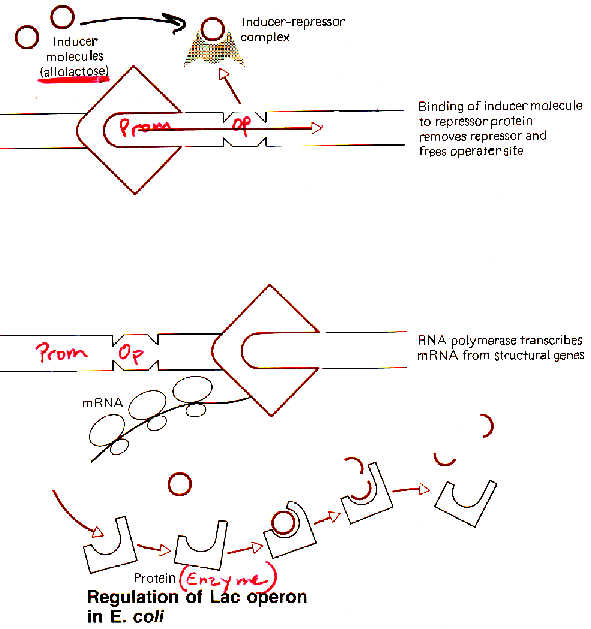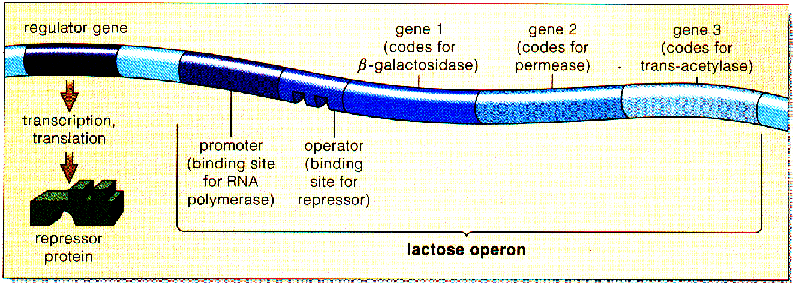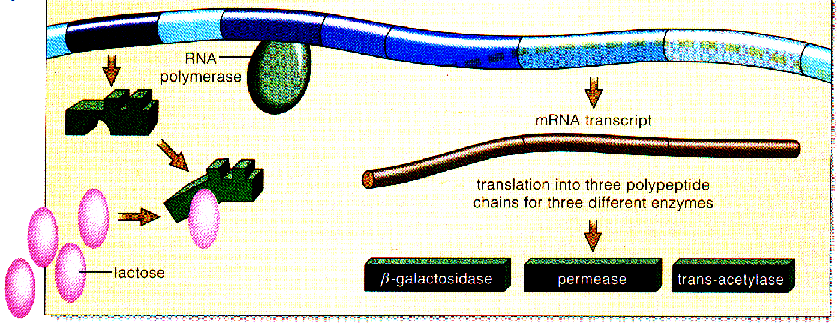Ch. 16
Positive Feedback Mechanism & The
Lac Operon
The lac operon is that part of the bacterial
genome that is responsible for the production of enzymes that convert the disaccharide
(double) sugar lactose into the monosaccharides glucose and galactose. It typically
would consist of 3 different parts of DNA. These include the promoter site where
RNA Polymerase binds to the DNA, the adjacent operator site to which the inducer
binds, and the structural gene that makes the enzyme to break down lactose.
The operator site is between the promoter and structural gene.
A regulatory protein, known as a gene repressor protein,
is produced by the bacteria to prevent transciption of the gene that produces
the enzyme. When the gene repressor protein is bound to the operator site (see
diagrams below), this prevents RNA polymerase from binding to the DNA moleucle
and thus initiating transcription (making of mRNA).
To allow transcription of this gene, a small molecule known as an inducer
(in this case, this is a molecule of lactose) may bind with the repressor protein
on the reverse side from its active site. This causes an allosteric change to
the shape of the active site, so the repressor can no longer bind to the operator.
Now RNA polymerase may bind to the promoter site on the DNA and begin transcription.
Be aware that this happens in the Lac Operon only when the concentration of
lactose in the bacteria is high. When there is a lot of lactose present the
lactose needs to be broken down. When the lactose binds to the repressor, the
RNA polymerase molecule is then able to transcribe the enzyme needed to break
down the extra lactose molecules.
Long & Slichter


